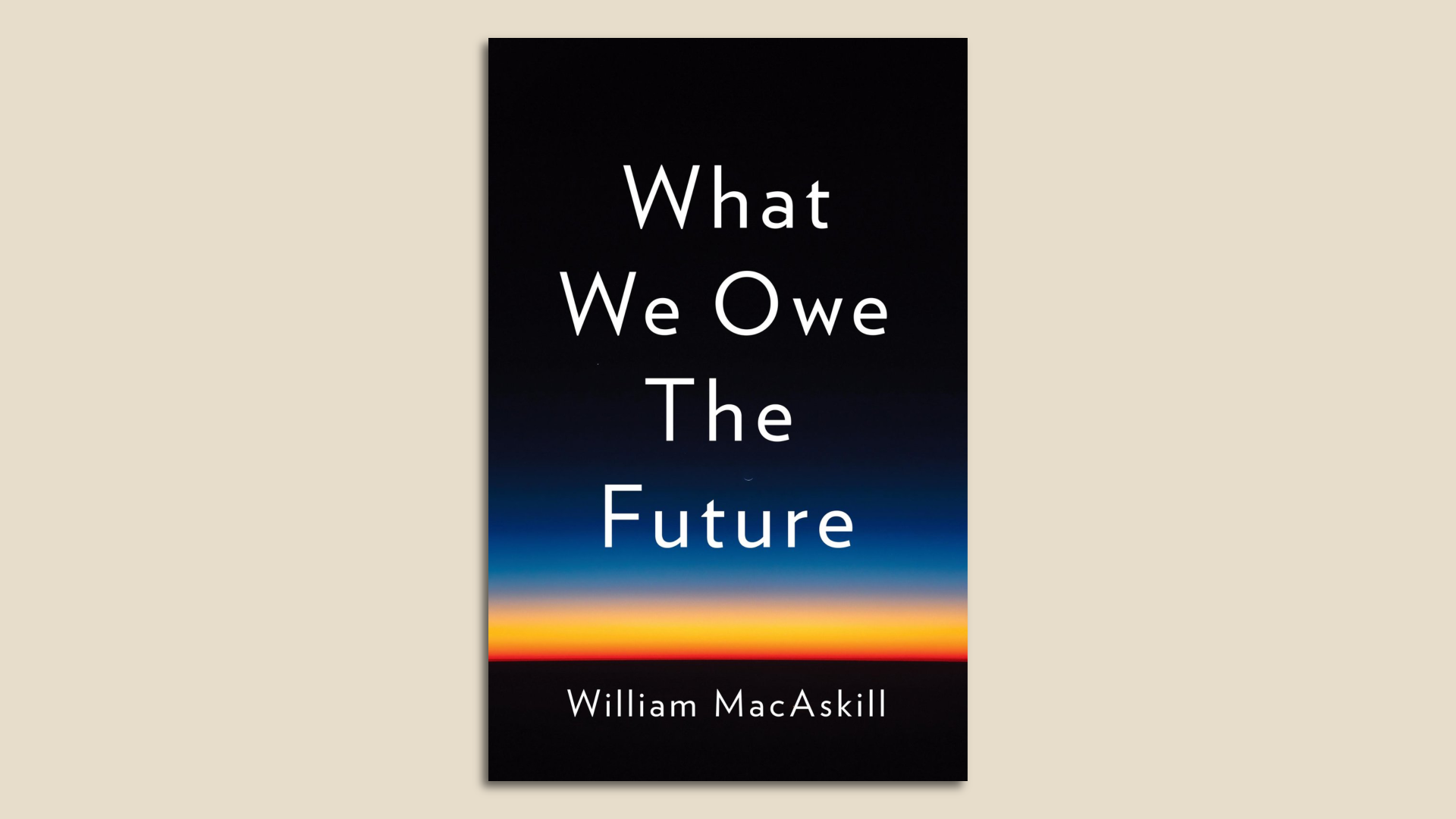| | | | | | | | | | | Axios Markets | | By Felix Salmon · Aug 13, 2022 | | Welcome back to Axios Markets! We're back to six days a week starting Monday, forever, or at least until Labor Day. - In this week's 1,377-word edition of Markets Weekend, I take a dive into the philanthrosphere. It should take about 5 minutes to read.
| | | | | | 1 big thing: Institutionalized altruism |  | | | Illustration: Sarah Grillo/Axios | | | | Effective altruism, or EA, has become an institutionalized arm of Big Philanthropy, complete with billionaire megadonors and six-figure incomes for a slew of Western white-collar professionals. Why it matters: That's a big, fast change for a movement that started out about 10 years ago on a much more grassroots level, focused on things like veganism and giving away most of your earnings. The big picture: EA in general has come a long way from the early idea that if $4,000 can save a life in Uganda, perhaps by providing a simple tool like mosquito nets, then I have a moral obligation to send that $4,000 to Uganda, rather than, say, spend it on travel or restaurants or art. - The bed-nets philosophy is exemplified by GiveWell, and is characterized by rigorous quantification of lives saved (or massively improved) per dollar spent.
- GiveWell's biggest early donors, Facebook and Asana billionaire Dustin Moskovitz and his wife Cari Tuna, have since expanded into much more conventional philanthropy, like giving millions of dollars to a Washington think tank, or funding "a summer boot camp for PhD students on the economics of innovation", all under the increasingly broad umbrella that is EA.
Sam Bankman-Fried, or SBF as he's universally known, is possibly an even richer EA, depending on how crypto is doing. SBF's conception of EA has expanded to include old-fashioned political donations, or even buying sports arena naming rights for $135 million. - The idea is that the naming rights will prove profitable for his crypto company, FTX, and thereby generate more money for important causes, even as the naming-rights money is put towards fighting gun violence and poverty in Miami.
Between the lines: As EA moved from late-night Oxford grad student conversations to Silicon Valley billionaire strategy decks, it inevitably grew in ambition, and flipped from one extreme to the other of the charity-philanthropy spectrum. - Simply saving lives of people living today is no longer enough; the new emphasis is on saving or improving the lives of people who might not even be born for hundreds of thousands of years. That project, naturally, involves funding a lot of academics.
- Somehow, the result seems to be, in the words of The New Yorker's Gideon Lewis-Kraus, that "a group of moral philosophers and computer scientists have happened to conclude that the people most likely to safeguard humanity's future are moral philosophers and computer scientists."
The bottom line: The funding decisions made at the big EA shops — Open Philanthropy and the FTX Future Fund — undoubtedly have internal logic. They can also look quixotic and driven by the founders' personal whims, just like the decisions made at most other large philanthropies. |     | | | | | | 2. The EA 2.0 media blitz |  | | | | EA's leading thinker, Will MacAskill, has been doing a media tour in advance of the publication on Tuesday of his new book, "What We Owe The Future"; he's written a good précis for the BBC, and a slightly longer version for the NYT. - What they're saying: MacAskill's thesis is provocative, builds on centuries of moral philosophy, and is unafraid to come to unintuitive conclusions. "If you could prevent a genocide in a thousand years, the fact that 'those people don't exist yet' would do nothing to justify inaction," he writes. "The future is just as real as the present or the past."
Go deeper: The New Yorker's Gideon Lewis-Kraus has the best profile of MacAskill, including a short history of EA and explanation of where it has ended up. The bottom line: As EA has become better funded, it's receiving more mainstream attention than ever. Even though MacAskill's "longtermism" is highly controversial within philanthropy circles, nearly all of the coverage has been positive. |     | | | | | | 3. Taking from the poor, Afghanistan edition |  | | | Photo illustration: Sarah Grillo/Axios. Photos: Gary Hershorn, Javed Tanveer/AFP via Getty Images | | | | At the heart of EA is a utilitarian philosophy, whereby scarce resources (cash) are targeted where they can do the most good for the most people. And while much contemporary EA is being used to try to influence the government in various ways, the government can veer wildly in the opposite direction. What they did: After the U.S. withdrew from Afghanistan and allowed the Taliban to take over, the Biden Administration froze some $7 billion of central bank funds. President Biden then allowed half of that money to potentially get redirected to rich Americans — including about 150 families who stand to receive eight-figure payouts. The intrigue: A group of families of 9/11 victims sued the Taliban after the attack, and won a summary (and seemingly symbolic) judgment when the defendants failed to show up. Now, they claim that Afghanistan's central bank reserves belong to the Taliban, and can therefore be seized in payment of those obligations. - The other side: There's a strong case to be made that the funds belonged to Afghanistan, not to the Taliban, and therefore can't be seized. That might yet be the final verdict in the case.
Driving the news: A group of 70 international economists, including Joe Stiglitz of Columbia and Heidi Shierholz of the Economic Policy Institute, is urging the U.S. government to give the Afghan central bank its money back — but there's no indication that anyone at Treasury is sympathetic. - What they're saying: "Without access to its foreign reserves, the central bank of Afghanistan cannot carry out its normal, essential functions. Without a functioning central bank, the economy of Afghanistan has, predictably, collapsed. The people of Afghanistan have been made to suffer doubly for a government they did not choose."
The bottom line: The U.S. government has vastly more power than any philanthropy. But its motivations are very different, and political considerations often overrule humanitarian ones. |     | | | | | | A message from Axios | | Recruit top talent with Axios | | |  | | | | Axios has job boards in the fastest growing cities in America. Reach smart professionals that visit Axios Local to make decisions about where to work, what to do and where to live. Post your job and use code AUGUST50 for $50 off. | | | | | | 4. Philanthropy eclipses charity |  | | | Illustration: Sarah Grillo/Axios | | | | The move from individually-determined charitable donations to institutionally-determined philanthropic strategies, as detailed in the Lewis-Kraus article, isn't purely an EA thing. It describes pretty much the entire U.S. nonprofit sector. Why it matters: A new report from the Institute for Policy Studies shows megaphilanthropy crowding out individual donations. By the numbers: 20 years ago, two thirds of American households gave to charity. Today, it's less than half. Meanwhile, households earning more than $1 million per year accounted for 40% of charitable deductions in 2019, up from 10% in 1993. - Some $25 billion was donated by megadonors in 2021. About 80% of that $25 billion went into private foundations and donor-advised funds where the donors retain full control of how (and even whether) the money is spent.
The bottom line: Charities like to say that "every penny counts." In reality, small-dollar donations have never mattered less. Increasingly, it's a small number of ultra-high net worth individuals, alongside even fewer old money foundations, who determine whether charities thrive or wither away. |     | | |  | | | | If you like this newsletter, your friends may, too! Refer your friends and get free Axios swag when they sign up. | | | | | | | | 5. The post-neoliberal vision |  | | | Illustration: Maura Losch/Axios | | | | Institutional philanthropy does tend to be better at influencing governments than individual charity. One sign of its current importance is the Inflation Reduction Act that is set to get signed into law next week. The big picture: Neoliberalism, as an intellectual paradigm, replaced Keynesianism in large part thanks to significant philanthropic funding. - In a 2017 memo, Hewlett Foundation president Larry Kramer identified the William Volker Fund as a key early player, with at least half a dozen later funders, including the Koch family foundations.
- Those foundations helped neoliberalism, with its emphasis on the power of free markets, replace the Keynesian vision of economies controlled by governments.
Where it stands: The Hewlett Foundation and others are now trying to lay the intellectual foundations for whatever comes next — whether it's called productivism, democratic capitalism, supply-side progressivism, or something else. - The big idea: Something will replace neoliberalism, which is dead. And that something should not be anti-democratic ethno-nationalism.
What they're saying: "The Inflation Reduction Act is solidly what we're looking for," says Hewlett president Larry Kramer. "We had nothing directly to do with that bill. But the frameworks that underlie it were all things that were funded directly on the Hewlett side." - Go deeper: Axios' Andrew Freedman unpacks the politics and economics of the act, and explains why it doesn't include neoliberal climate solutions like a carbon tax.
The bottom line: Kramer is fully aware of the irony involved in an unaccountable private foundation trying to save democracy. But, what else can he do? |     | | | | | | A message from Axios | | Recruit top talent with Axios | | |  | | | | Axios has job boards in the fastest growing cities in America. Reach smart professionals that visit Axios Local to make decisions about where to work, what to do and where to live. Post your job and use code AUGUST50 for $50 off. | | | | Dustin Moskovitz is one of the few EAs who has a well developed sense of humor about EA. Check out his Twitter thread on "How many EAs does it take to change a lightbulb?" |  | | Why stop here? Let's go Pro. | | | | | | Axios thanks our partners for supporting our newsletters. If you're interested in advertising, learn more here.
Sponsorship has no influence on editorial content. Axios, 3100 Clarendon Blvd, Arlington VA 22201 | | | You received this email because you signed up for newsletters from Axios.
Change your preferences or unsubscribe here. | | | Was this email forwarded to you?
Sign up now to get Axios in your inbox. | | | | Follow Axios on social media:    | | | | | |












No comments:
Post a Comment